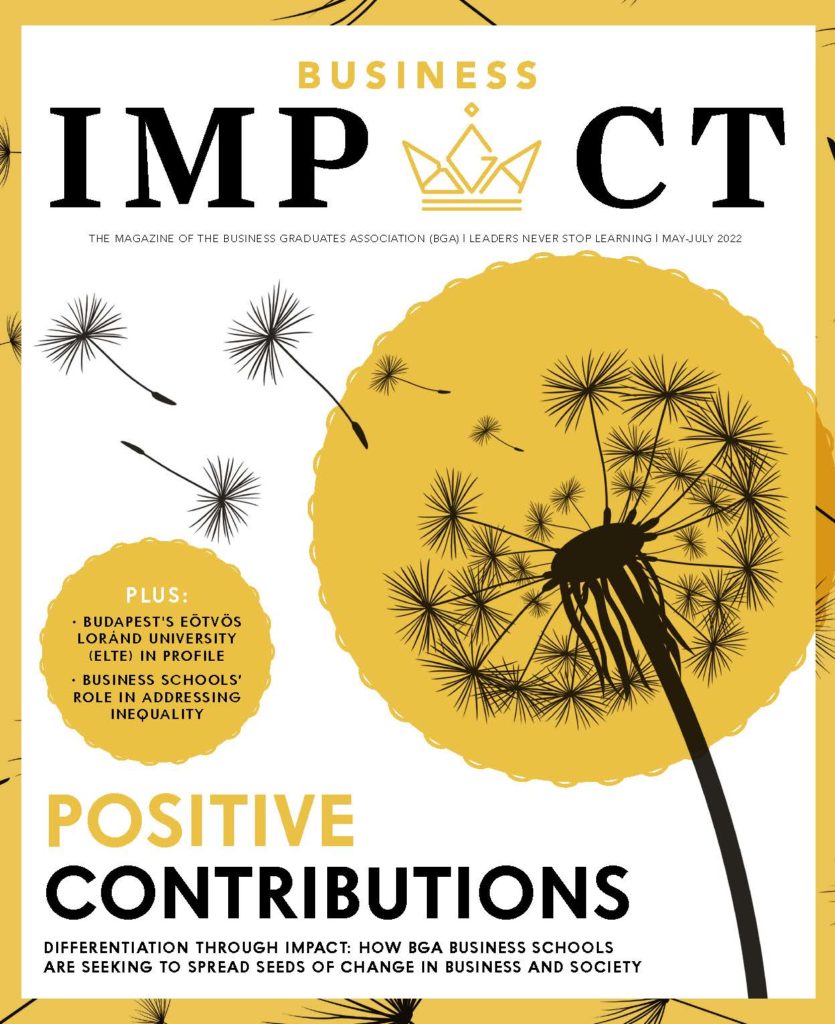Building a career with impact in CSR


The story of capitalism in the 21st century is largely the story of responsible business. Of course, businesses must still focus on the bottom line, but the days where this is all that a business focuses on are long gone.
One growing focus for business is on how they can be better corporate citizens. This is driven by ever-more conscientious consumers demanding ethically delivered products and services, as well as an increasing awareness of the challenges we collectively face, such as climate change and structural injustice.
According to research from KPMG, more than 90 per cent of the 250 largest US companies published a corporate social responsibility (CSR) report in 2020. This number has been steadily increasing over the past 15 years – 64 per cent reported on CSR in 2005 – and has been supercharged as the pandemic increased the focus on risks of all kinds, including environmental and reputational.
This has led to the emergence of a whole new career path in the field of CSR. As businesses look to professionalise and embed their approach, they are seeking creative and ambitious people to help shape and deliver their CSR agendas. We have seen this at global financial services provider Apex Group, where a dedicated Head of CSR role has now been created for the first time. So, what can this relatively new career involve and what is needed to succeed on this path?
Building a CSR skillset
Not so long ago, CSR roles and corporate responsibility were largely the preserve of the creative industries. This meant that the field offered only narrow job opportunities and prospects for business graduates seeking an impactful career.
Recently however, this has changed dramatically. Now, corporate responsibility is front and centre for businesses across all sectors of the economy and there is a growing demand for CSR professionals across the fast-moving and growing professional services and finance industries. In one estimate, the number of CSR-related job roles was said to have jumped by nearly 75 per cent between 2020 and 2021, with nearly a third of those roles coming in senior positions. And according to research from recruiter Robert Walters, the financial services and professional services industries accounted for eight per cent and 13 per cent of CSR job vacancies, respectively, in 2021.
With greater opportunities to build an impactful career in CSR come greater competition for these roles. So, it’s important that those looking to build a CSR career start cultivating the skills needed to succeed in their career and ensure that they are equipped to drive positive and measurable change.
My own experience has taught me that running a successful CSR programme requires the ability to engage senior stakeholders to secure their buy-in, budget and explain the return on investment (ROI) you are delivering for the organisation. This ROI is just as much about corporate wellbeing, reputation and impact than it is about profit, so strong communication skills are essential to ensure you can translate outcomes into a language which your stakeholders understand and respond to.
Apex Group is committed to CSR, so internal conversations on the subject tend to be positive. Other businesses and management teams may need more convincing, however, so being able to engage, persuade and convince senior business leaders, especially those who remain unconvinced by the need for a focussed CSR programme, is going to be central to success.
As a CSR lead, you also need to be able to take the business with you. This means demonstrating to colleagues and managers why CSR is important, why it should be done and how best to do it, as well as communicating its positive impact. Building an internal network is also important as you will have to work closely with teams across an organisation. This could include any governance or regulatory teams as CSR is closely tied to growing regulatory responsibilities around environmental and social governance (ESG). You’ll also be working with HR in relation to giving employees the chance to get involved, for example, and with the communications team so that the good work being done can be communicated properly to your internal and external stakeholders. In addition, you’ll need to build a network with NGOs, partners and charities outside the organisation that can help your business drive positive change.
More than all this, however, you will need a genuine passion for having a positive impact to succeed in CSR. This isn’t a role where you can fake it and you’ll need to be sincere in your desire to do good for people and the planet.
Challenges
Making an impact is not always going to be straightforward and CSR roles come with potential challenges and setbacks that those looking to build a career in the field should be prepared for.
Many of the challenges relate to the realities of the corporate world generally. Navigating large, matrix organisations with disparate teams that are often spread across multiple locations requires intelligence, adaptability and people skills.
However, one challenge I’ve found that is particular to CSR is choosing which causes to support. Apex Group supported the launch of the Apex Foundation in 2022, a non-profit entity set up to support charitable initiatives and projects that empower positive change. We set out clear criteria for the foundation to support grassroots charitable projects in two key areas: the preservation, conservation, and protection of the environment; and women’s empowerment and economic independence. These aims align with the personal priorities of the Founder and CEO of Apex Group, Peter Hughes, and the firm’s CSR objectives. The criteria then made it easier to identify the charities with which we have now partnered – namely, WaterAid, Blue Marine Foundation, CAMFED and Tusk Trust.
While it feels great to offer support to charities that fit your company’s CSR priorities, turning down those that aren’t currently the right fit is hard. It can be emotionally tough and conversations can require a good deal of diplomacy.
What next?
CSR is one of biggest growth areas around right now and is a great field in which to consider building a career. It allows me to combine professional development and career growth, with the sense of fulfilment that comes with supporting deserving causes and helping move the corporate world and wider economy towards driving positive change for people and planet.
My advice for those looking to enter this career would be to stay passionate and to keep learning. Regulation is constantly changing, so listen to webinars, attend networking events and join relevant groups on LinkedIn. Your role is to be in the know and keep up with emerging knowledge. Find what works best for you – my top tip is to listen to podcasts on your commute or on a run. This is when some of my best CSR inspiration has struck.

Lakshmi Woodings is head of CSR for global financial services provider, Apex Group. With a decade of experience working in marketing and communications, Lakshmi is responsible for developing and executing comprehensive campaigns to promote and drive forward CSR initiatives.
Read more Business Impact articles related to careers:

Building a career with impact in CSR
Creative and ambitious people that can help businesses shape and deliver their CSR agendas are in demand, says Lakshmi Woodings. Discover what careers in CSR involve and the skills you’ll need to succeed

Digital dash opens door to STEM careers in marketing
From data analysis to chatbots, technology is already playing a big role in marketing and STEM graduates are well-positioned to harness the benefits, says RAPP’s Head of Client Success Imogen Tostevin

Five top skills to ensure you are recession-proof
Whether you’re a business owner, leader or employee, there are things you can do to ensure you’re ready to withstand any economic crisis that comes your way. Find out what with these top tips
Want your business school to feature in
Business Impact?
For questions about editorial opportunities, please contact:
Tim Banerjee Dhoul
Content Editor
Business Impact










































